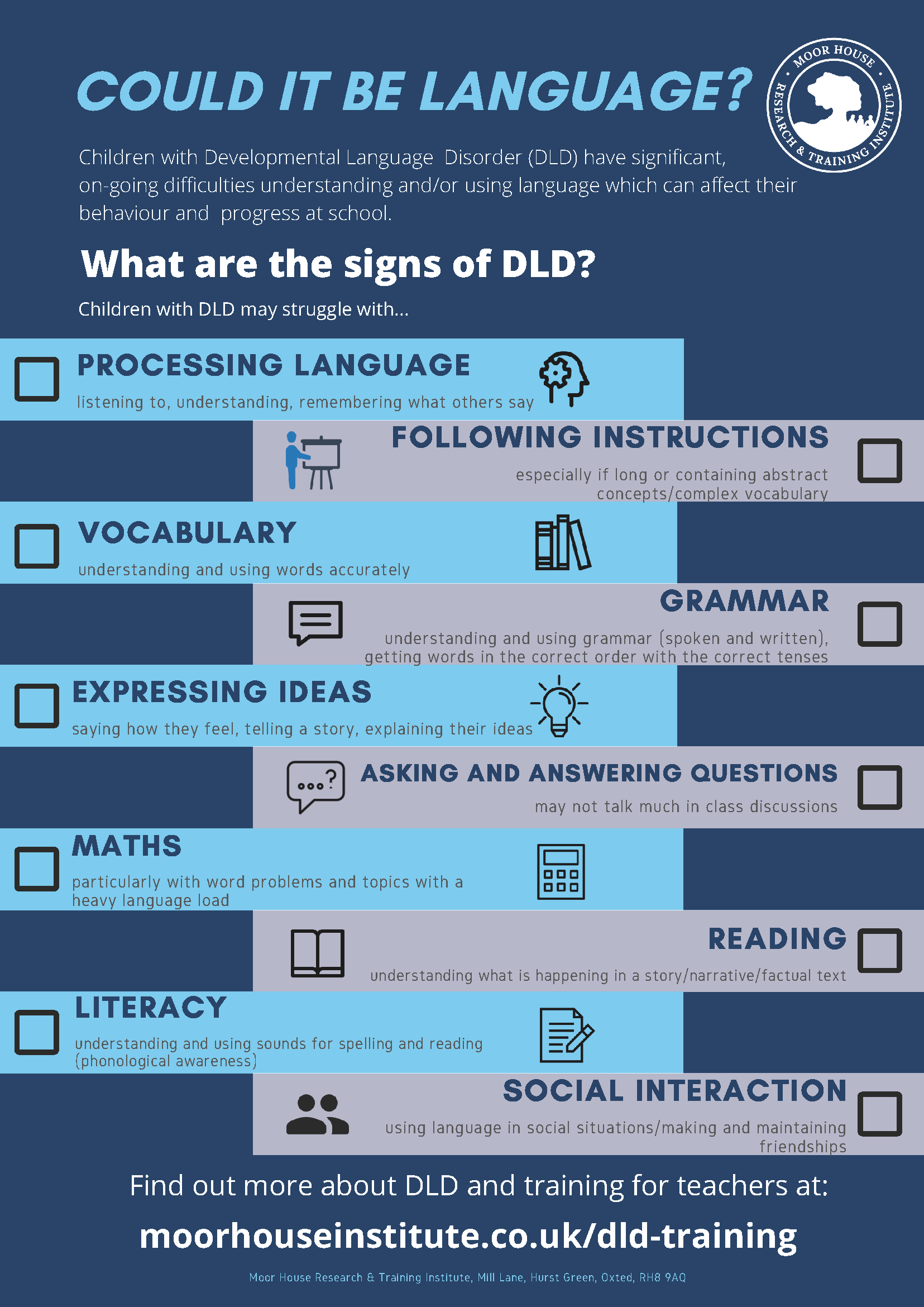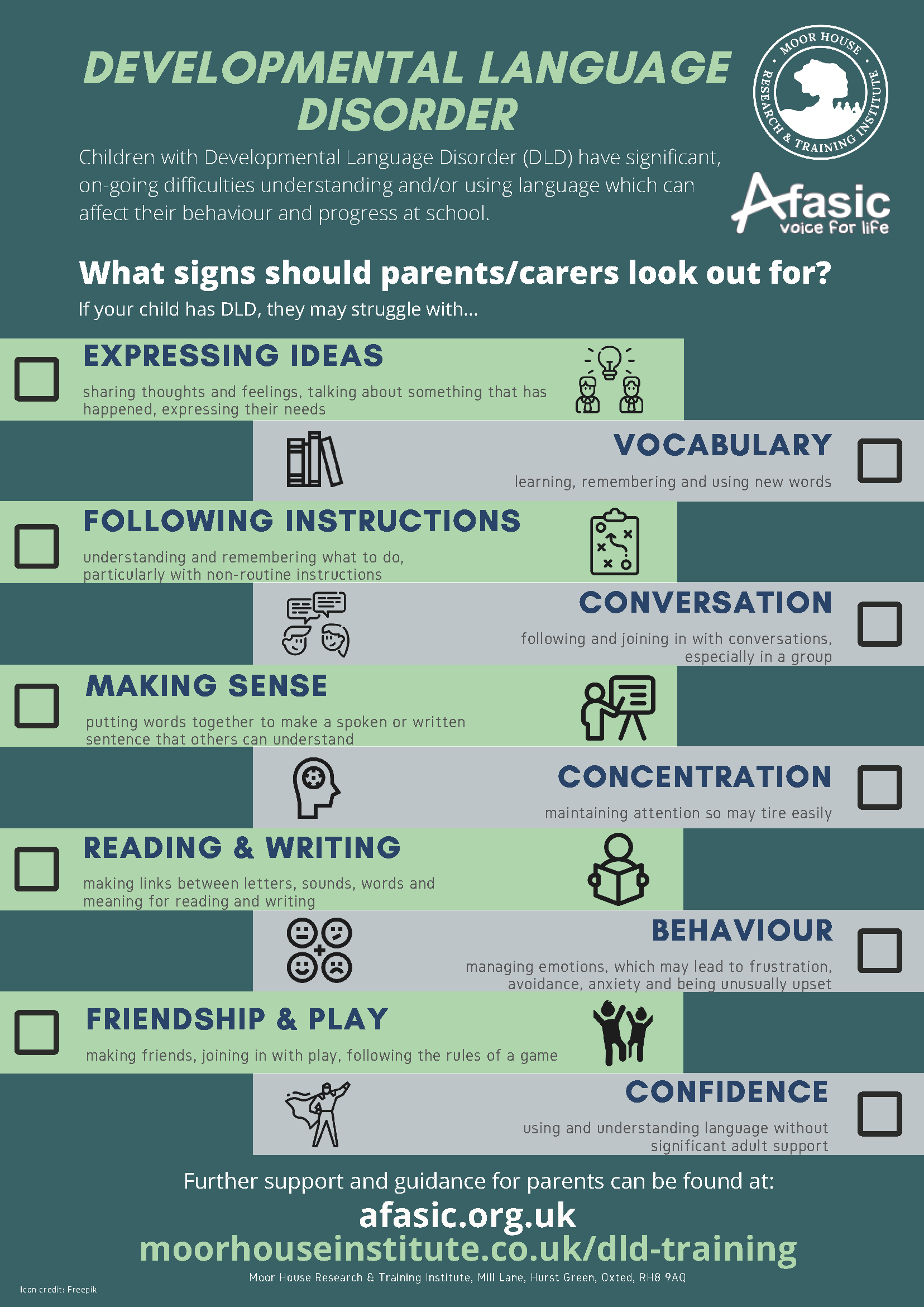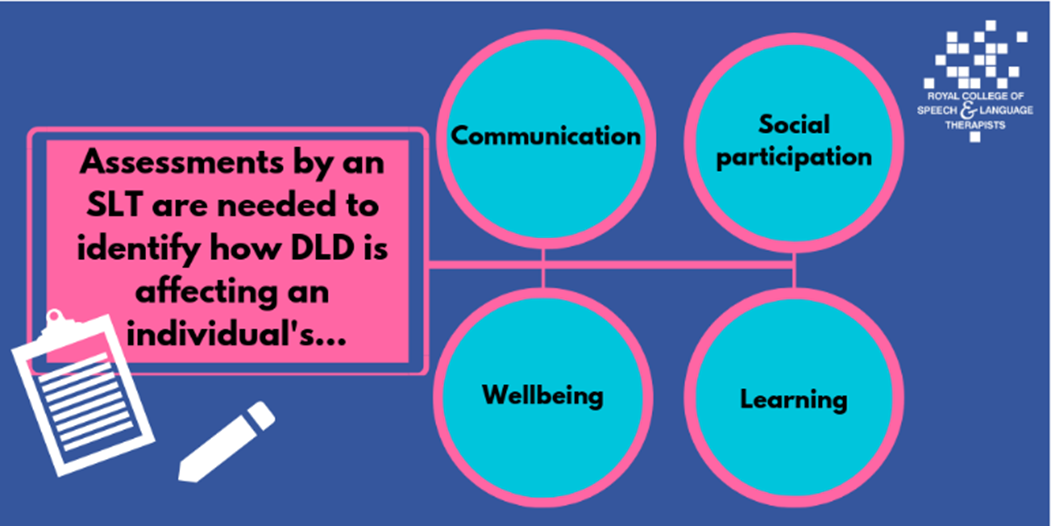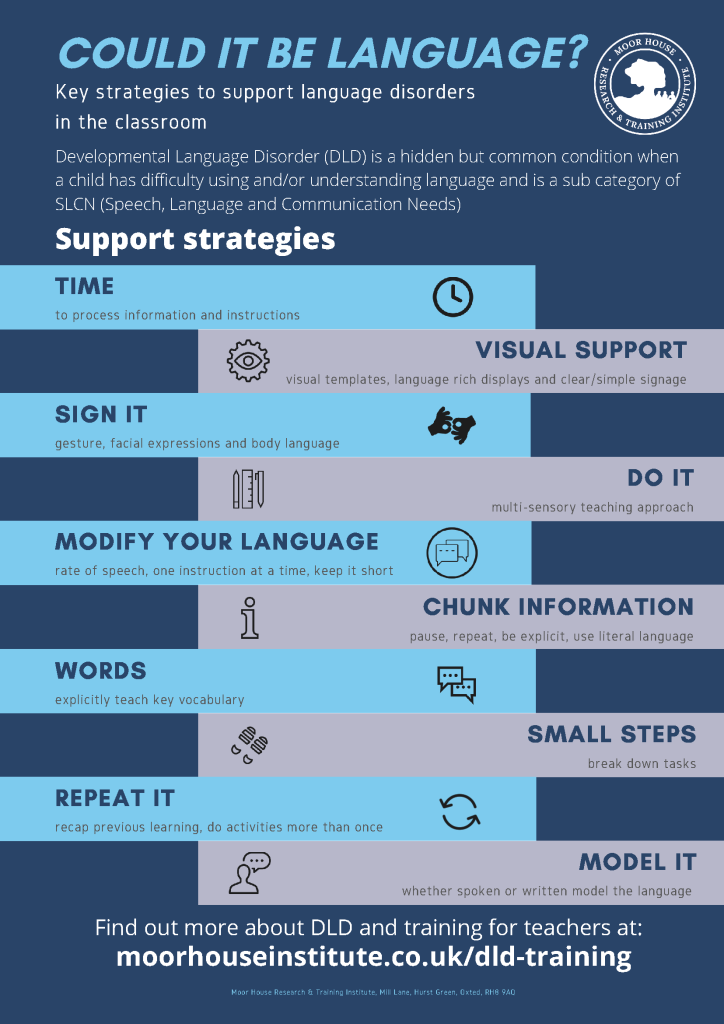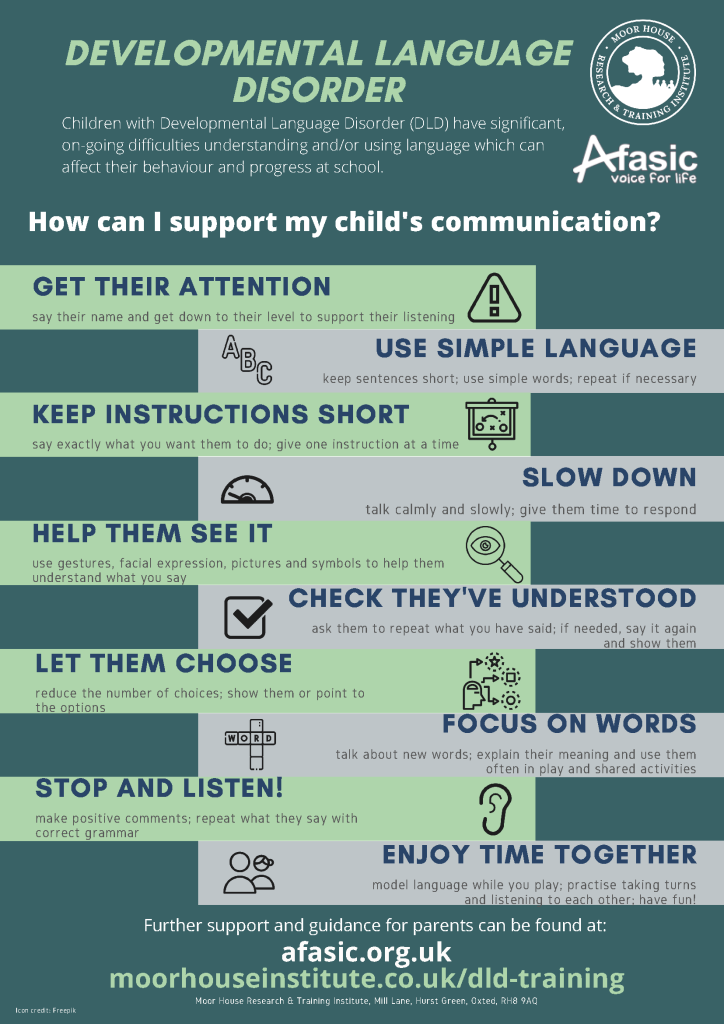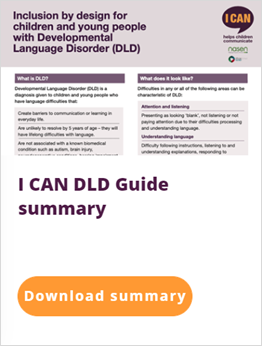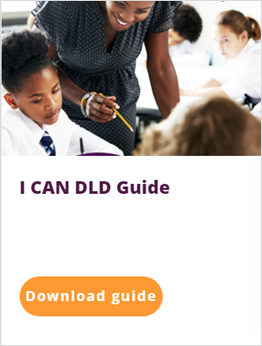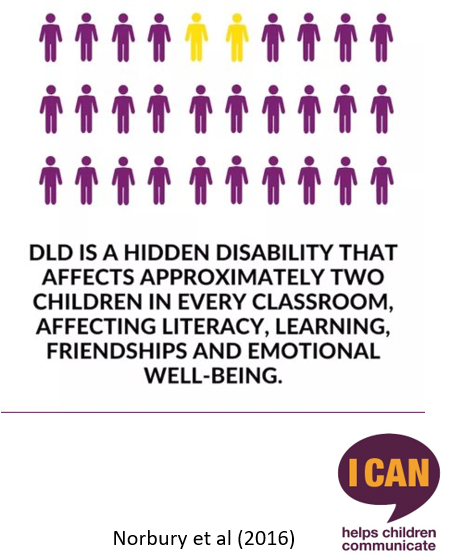
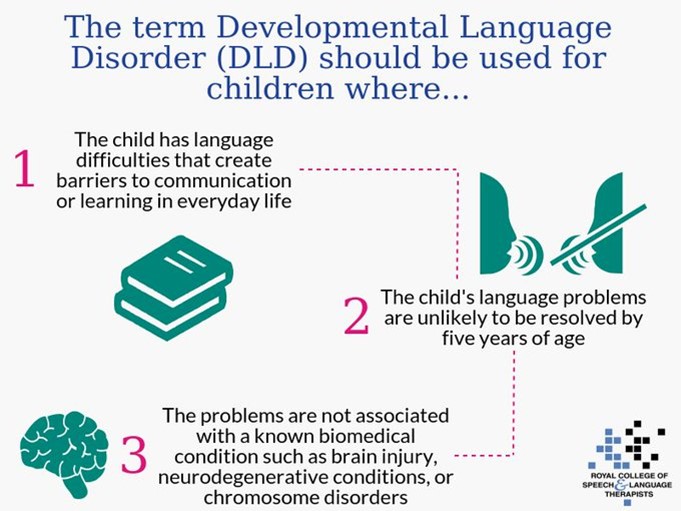
Signs of DLD
Click on the posters below to download.
How can speech and language therapy help with DLD?
Speech and language therapy can help people with DLD to develop their language abilities to their maximum potential. Speech and Language Therapists will teach strategies to the child and those around them to reduce the impact of their communication difficulties and support them to access education and social activities.
Input by an SLT may include:
- Identifying, assessing, and diagnosing the communication difficulties.
An SLT will carry out comprehensive assessments in order to identify language development and areas of difficulty for the individual. They will assess how this impacts on: communication, educational outcomes, social participation, and wellbeing.
- Developing and delivering strategies and programmes of therapy to support a child with DLD.
- Supporting schools to integrate strategies into the classroom in order to maximise children’s language learning and use.
- Helping others e.g. teachers and parents in their use of communication techniques and communication friendly classrooms.
- Raising awareness, educating, and training professionals in identifying and working with children with DLD.
- Supporting parents with what to expect following their child’s DLD diagnosis.
Recommended videos
Strategies to support children and young people with DLD
Click on the images below to download.
Educational support for DLD – resources and webinars
Educational support for children with Developmental Language Disorder (I CAN)
Click on the images below to download.
To access further information about DLD
- DLD and Me
- Engage with DLD. Engage with Developmental Language Disorder (E-DLD) connects people affected by DLD to academic research.
- I CAN. The children’s communication charity.
- NAPLIC. The National Association of Professionals supporting Language and Communication development.
Recommended books
- My Friend Abigail, by Paulina Blanco and Tessa Marcoux
- Supporting Children with DLD: A Picture Book and User Guide to Learn About Developmental Language Disorder, by Kate Kempton
- Developmental Language Disorder (DLD). I’ll Help You Understand It, by Amanda Hampshire and Susan Stewart
Local help and support
If you have any questions about Developmental Language Disorder (DLD), or have concerns about a child or young person, you can seek help through the Livewell Southwest Request for Help process. You can contact us on 01752 434844. School staff can also request a discussion with their link Speech and Language Therapist.
We also offer training on Developmental Language Disorder (DLD) for professionals – this aims to support you to understand the term DLD, have the knowledge to identify DLD, understand why it is important for children and young people (CYP) that we identify DLD, understand strategies to support those with DLD, and to raise awareness of the additional resources available.
Survey
We would be grateful if you would complete a survey based on your experience of this service: Friends & Family Test
Contact
For general enquiries, or to be directed to a specific service or individual, please contact our switchboard on 01752 435502.
What people said
See what others have said about our service – click here.


